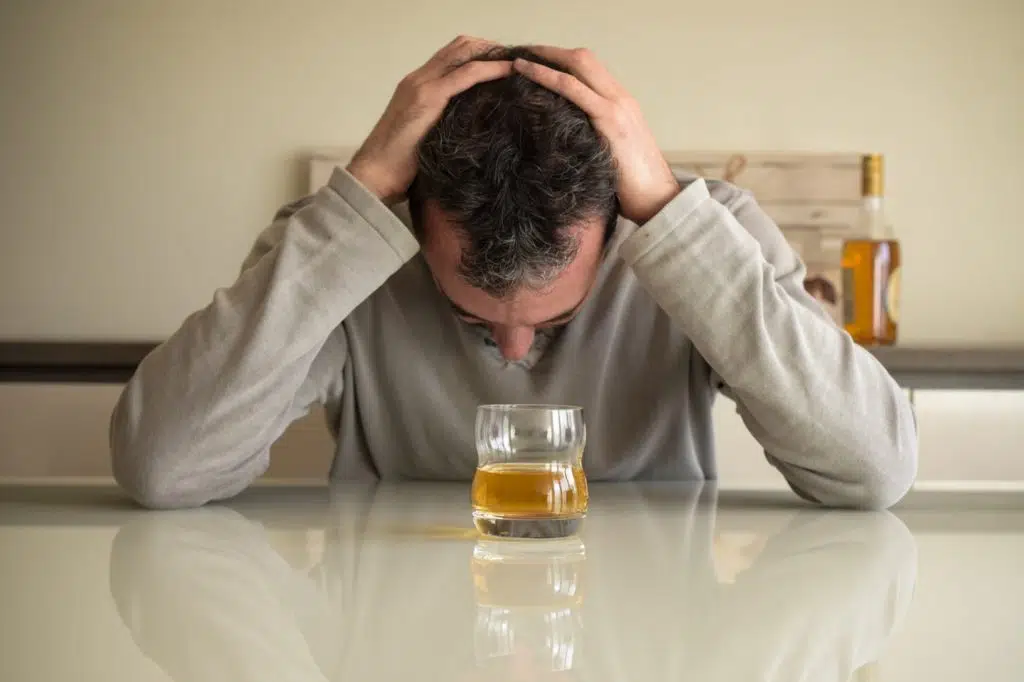The idea of getting sober can feel overwhelming to those addicted to alcohol. If you or a loved one wants to get sober, the skilled specialists at Miramar Recovery Center do not recommend attempting to detox alone.
Alcohol withdrawal symptoms can be dangerous or even life-threatening if handled without proper treatment. This is true for those who have been drinking for a very long time and those who haven’t. Detox symptoms can change very quickly and have the potential to cause serious medical complications like nausea, vomiting, seizures, or even hallucinations.
Entering an inpatient or outpatient treatment program is highly recommended and allows you to detox from alcohol in a safe and controlled environment while giving you the best chance for long-term recovery. Inpatient detox programs offer around-the-clock care in a hospital, center, or clinic setting and are recommended for those with a severe alcohol addiction. Outpatient detox programs offer support during your alcohol detox process while allowing you to continue living at home. Inpatient care offers more services, but it tends to cost more. Outpatient care is a less-expensive option that is generally considered safe and effective for those with mild or moderate alcohol addictions.
What is alcohol detox?
If you have questions like, “What is the alcohol detoxification process?” we can help. Alcohol detoxification is the natural process that occurs in the body as it attempts to rid the system of toxins and other waste products from excessive, long-term alcohol consumption. When you begin the alcohol detox process at Miramar Recovery Center, you will receive personalized, medically supervised care that includes medication, medical observation, and counseling.
The alcohol detox process can be broken down into three main stages. While symptoms range from mild to severe during each stage of detox, people will feel much better or even like their normal self afterward.
Let’s look at the three main stages of the alcohol detox process:
Stage 1: Mild symptoms
Mild symptoms of alcohol detox can begin as soon as 6 hours after your last drink. Early symptoms can mimic a hangover and progress into:
- Anxiety
- Confusion
- Irritability
- Nausea
- Vomiting
- Profuse sweating
Stage 2: Moderate Symptoms
As stage one withdrawal symptoms begin to wane, stage-two symptoms will begin. This stage involves more serious symptoms and typically begins 12-24 hours after your last drink. Stage two symptoms include:
- Elevated blood pressure
- Irregular heartbeat
- Whole-body tremor
- Insomnia
Stage 3: Severe Symptoms
Though the exact timeline and severity of symptoms are unique for each person, the most severe symptoms typically begin 48-72 hours into detoxification and can involve symptoms of seizures or delirium tremens. Other common symptoms of stage three withdrawal include:
- Visual and auditory hallucinations
- Fever
- Convulsions
If you or a loved one has a long history of alcohol abuse, detoxing alone can be dangerous, or even fatal. Get the help you need to detox safely and avoid these life-threatening symptoms:
- Seizures
- Aspiration pneumonia
- Heart arrhythmias
- Kidney or liver dysfunction
- Heart failure
Treatment after alcohol detox
If you’re ready to begin detox treatment today, call Miramar Recovery Center at 949-691-5036 for safe, effective treatment. The alcohol detox process is the first step toward long-lasting recovery, and we’re here to help you each step of the way.
Following detox, your treatment program will vary depending on your unique situation and the severity of your addiction. However, all our patients receive the same core, quality treatment. Once you’ve safely removed all alcohol from your body, here is how you can maintain the sobriety you’ve achieved and live the life you deserve:
- Enroll in a professional rehabilitation program
Inpatient and outpatient drug rehabilitation programs are the best way to break the habit of compulsive alcohol use, decrease your risk of relapse, and begin a sober lifestyle. - Participate in therapy
Behavioral therapy can help you develop healthy coping strategies and teach you how to regulate your emotions. Family therapy can help you and your loved ones work through addiction-related challenges and change dysfunctional patterns. - Attend peer support groups
You don’t have to do this alone. Consider attending alcoholics anonymous or another support program in addition to the peer support provided by your treatment facility. - Make healthy lifestyle changes
Once you are alcohol-free, it’s important to replace old habits with new, healthy habits like yoga, meditation, journaling, exercise, eating well, and building a life that’s full of healthy, beneficial, and refreshing activities. - Seek ongoing aftercare support
Aftercare support can help you readjust to everyday life, help you find sober housing, overcome major life transitions, find a job, deal with legal problems, and help you set and achieve life goals.
There is hope, there is help. Call Miramar Recovery Center today.




